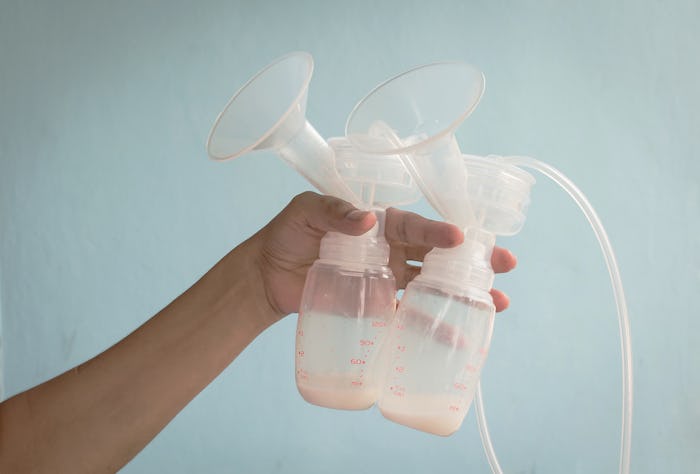Life

Why Does Breast Pumping Help Induce Labor?
As the end of your pregnancy draws near, you're probably willing to do just about anything to get labor started. Full term pregnancy gets very uncomfortable and as your baby runs out of room, it's normal to look into options for getting the show on the road (ie. inducing labor on your own.) You may have heard that breast pumping or nipple stimulation is one of the many ways moms can induce labor at home. And before you start pumping away, learning about why breast pumping helps induce labor can help you decide if it's the right option for you.
According to Trimester Talk, aside from medical interference, there isn't any one method that's guaranteed to start your labor. Everyone is different and your body will start labor when it is ready to, but these methods can help speed the process along, if your body is already prepping for the big day.
Evidence may suggest that using a pump to start your labor is effective. One study compared women who used breast pumps with those who received oxytocin infusions and the women who used the pumps entered active labor quicker than the other group, although there was no difference in the ultimate lengths of their labors.
The reason pumping is so effective at getting things moving is simple: breast stimulation releases oxytocin, which causes your uterus to contract. According to Belly Belly, oxytocin is the hormone responsible for strengthening your contractions (and also causing orgasm, interestingly) and can be released before labor, or during labor to speed up contractions.
If you decide to give pumping a try, there are a few things to keep in mind first. First, Belly Belly noted never to pump both breasts at once. You should pump for 15 minutes at a time, to avoid too much stimulation, and then switch sides. Finally, since your body is already likely making colostrum, many moms decide to store their colostrum for use once their baby is born. The decision is yours, knowing there are safe alternatives to medical induction can help many moms take charge in the late phase of their pregnancy.